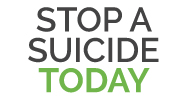NEWS
Oct 5, 2023: Free National Depression Screening Day resource toolkit for college campuses
Aug 20, 2023: More obituaries acknowledge suicide as openness on mental health grows
Aug 4, 2023: FDA approves first medication for treatment of severe postpartum depression
June 13, 2022: How to Help a Loved One Having Suicidal Thoughts
May 10. 2022: Firearm deaths and disparities both grew in pandemic’s first year
April 23, 2022: How to Help Teens Struggling with Mental Health
April 23, 2022: ‘It’s Life or Death’: The Mental Health Crisis Among U.S. Teens
Nov 7, 2021: SAINT: Hope for new treatment of depression
April 25, 2021: U.S. Suicides Declined Over All in 2020 but May Have Risen Among People of Color
Nov 23, 2020: Can an algorithm prevent suicide?
Nov 15, 2020: Suicide-related 911 calls spiking in NH amid pandemic, emergency responders say (with expert comments by Dr. Jacobs)
Aug 13, 2020: The pandemic is taking a toll on Americans’ mental health. A new CDC study shows who we need to worry about most
July 16, 2020: FCC designates ‘988’ as 3-digit number for National Suicide Prevention Hotline
June 23, 2020: Baker-Polito Administration Announces Crisis Counseling Assistance Program
Jan 30, 2020: We lost our son to suicide. Here’s how we survived
Nov 11, 2019: Youth suicides shown to rise with poverty levels
Sept 12, 2019: What Lies in Suicide’s Wake
June 16, 2018: Suicide on the Increase: Dr. Jacobs Discusses Suicide Prevention
